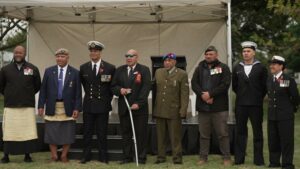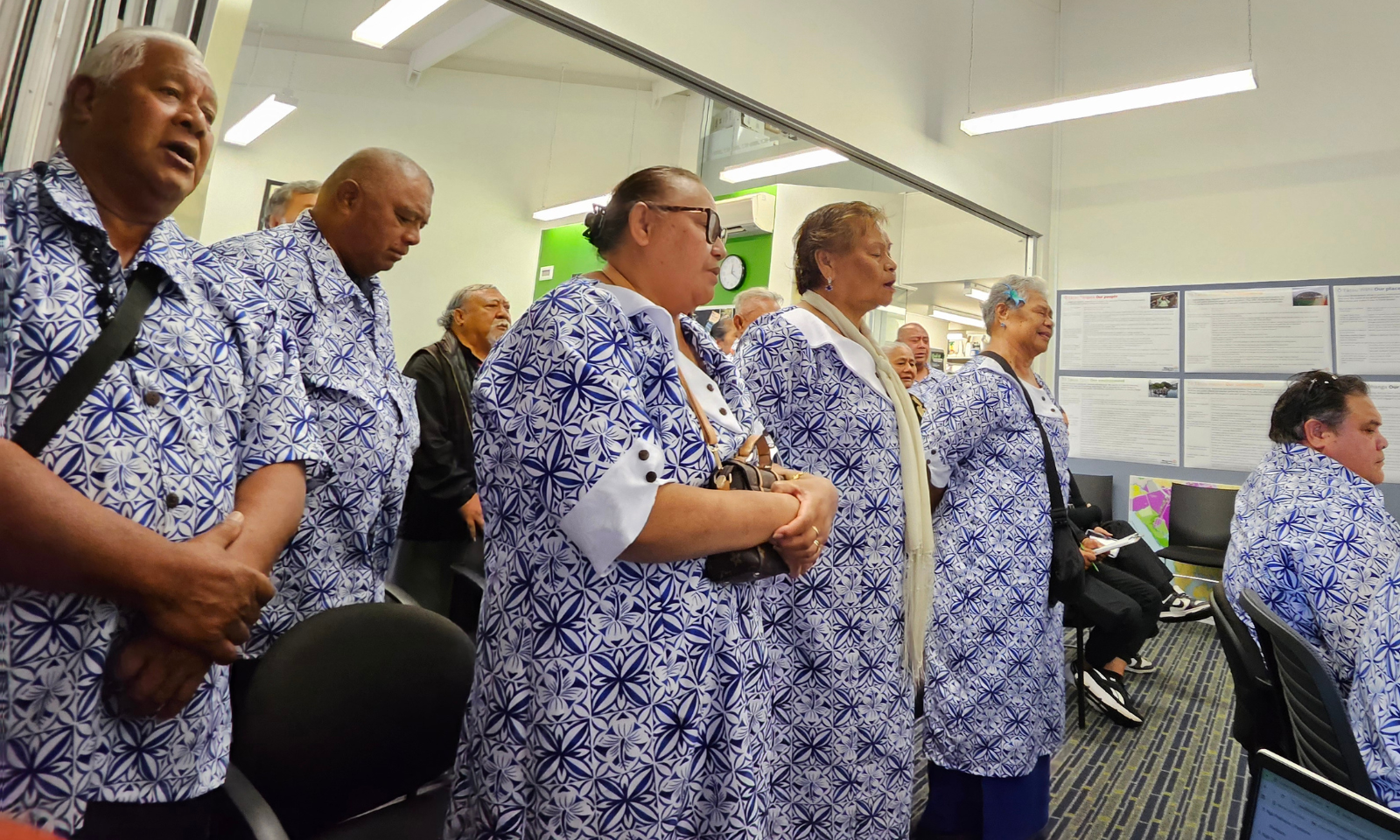Public Interest Journalism funded through NZ On Air
Anzac Day each year is a chance for service men and women along with their friends, family and community to honour the soldiers of yesteryear – those who’d served in wars, conflicts and peacekeeping operations around the world.
For Alfred Ngaro, the chair of the Cook Islands Anzac committee in Auckland, the annual event is about telling the stories of their fallen heroes.
“For many years we’d go to Anzac, we see it, we see it on tv, people talk about it but we never knew we had a connection,” Ngaro says.
“We never knew that our people played a part so this celebration of Cook Islanders means that we too can stand on days like this of commemoration.”
This commemoration is being held at the Cook Islands Development Agency of New Zealand (CIDANZ) facility in Māngere. It is paying tribute to the five hundred Cook Islanders who were called to serve in the first world war.
One of the young guests at the event, student Bailey Nicholas, is proud to show her respects.
“It’s very surprising because they were kind of my age like most of them, the volunteers were my age and for them to be doing things that are very dangerous that adults are supposed to do, I guess it’s very scary,” she says.
On hand to represent the New Zealand government at the event is Minister for Pacific peoples Barbara Edmonds.
“Anzac Day is a time to renew the bonds of friendship forged in hardship and to celebrate the comradery which never dies as commemorations have grown and evolved, we recognise all our pacific island soldiers who continue to serve proudly across the ranks of our defence forces,” Edmonds says.
Across in Ōtāhuhu, one of the smallest Pacific communities, Niue, is holding its own commemoration. Like the Cook Islands a sizable portion of Niue’s population volunteered to fight in the first world war, 150 in all.
Harry Mokalei is part of the Niue commemorations and he reflects on the sacrifice his ancestors made in 1915.
“Some of the soldiers, they ran away from home to join; they haven’t got the consent from their parents but that’s how they feel,” Mokalei says.
“They want to go with whoever that makes the call and yeah, so that’s why the number was 150.”
Another Niuean elder Sionepaea Kumitau is proud of the men’s strength and patriotism.
“I have uncles who went to war so I guess I am proud of them to take the family name,” he says.
After training in New Zealand 126 recruits were dispatched to Egypt and about half were sent to France the following year to serve with the pioneer battalion. However, unable to adapt to the harsh, wintry conditions overseas, more than 80 percent of the Niuean contingent were hospitalised while 15 died of diseases and were buried in France, England or at sea.
But it’s that sacrifice and bravery, elders like Lekei Laupa say, which needs to be remembered.
“Look at us today without them, there is no peace,” she says.
“Look at us, we have to cherish all the memories of our forefathers who have gone to war because they have no choice at all but they’ve just been asked to join in and go into war.”

In Mangere the Tongan community has gathered to mark Anzac Day.
Around 90 Tongans volunteered to fight in World War One, mostly as part of the New Zealand expeditionary force.
On hand to pay their respects are Tongans currently serving in the NZ Defence Force, like Warrant Officer Mark Latu from the Royal NZ Navy, who says he’s proud to be part of the services and represent his heritage.
“There’s plenty of Tongan personnel within the defence force,” he says, adding that many have been recruited from South Auckland and that it’s important to make them aware of history and the contribution Tongans have made.
“Just creating that conversation so that they understand you know, Tonga did play a part in these world wars providing that peace and stability for where we are now.”
Another Navy recruit is Liam Muller who is training as an Ordinary Electronic Technician.
“I feel happy I came here because this is my community and I rep around here. I just want to show them there’s sailors in the navy that are Tongan, that grew up here as well,” Liam says.
Chief Petty Officer Melissa Latu was also present.
“Definitely grateful for those who fought for us in days, time gone by,” she says.
“For our younger generation you know there is a space for you in the military to serve and to work with your community and you are definitely welcome with open arms,”












